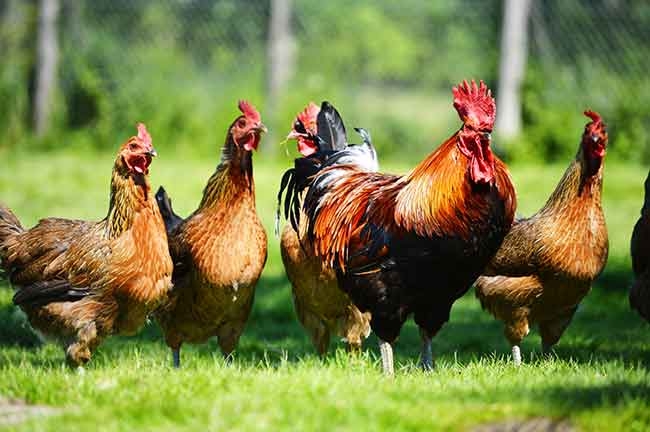
Small Flock Poultry Surveillance
By Karen Dallimore
Features Business & Policy Consumer Issues Poultry Research Research Through a brief questionnaire, researchers will gather information about common husbandry and biosecurity practices used by non-commercial flock owners. Data collected may help to identify diseases that are specific to the non-commercial poultry population Photo: Fotolia
Through a brief questionnaire, researchers will gather information about common husbandry and biosecurity practices used by non-commercial flock owners. Data collected may help to identify diseases that are specific to the non-commercial poultry population Photo: Fotolia
Ontario now has a research study underway that will generate baseline information about the main pathogens – viruses, bacteria and parasites – present in non-commercial poultry flocks in the province.
Starting the first of October 2015 until the end of September 2017, small flock (non-quota, non-commercial) owners of chickens, turkeys, game fowl, geese and ducks, are encouraged to submit sick or dead birds to the Animal Health Laboratory in Guelph or Kemptville for post-mortem examination and diagnostic testing. Submissions must be made through a veterinarian, who will do the initial screening of submissions. While there will be some veterinary fees involved at the farm level the lab testing itself will be done at a substantially discounted cost of $25 per submission. The tests would normally cost over $500.
“In general, there is not a lot of data,” said Leonardo Susta, DVM. “The number of small poultry flocks has markedly increased over the past few years in Ontario, however, there is a void of knowledge regarding the type and number of diseases that affect this segment of the poultry sector.”
Susta, who works out of the Department of Pathobiology at the Ontario Veterinary College, is leading this effort and is providing some of his own research funding to hire a graduate student for this project. Funding for the tests is provided by the Animal Health Laboratory (AHL) within the framework of the Ontario Animal Health Network within the Disease Surveillance Program.
Susta said there isn’t a lower limit on the size of the flock, with the upper limit of less than 50 turkeys, less than 300 broilers, less than 100 layers or 300 or fewer ducks, geese and game birds. Pigeons and doves are excluded from this study.
Through a brief questionnaire, researchers will gather information about common husbandry and biosecurity practices used by non-commercial flock owners. The data collected may help to identify diseases that are specific to the non-commercial poultry population, while helping vets better understand the needs of these flocks and producers. The results will be also tied with current surveillance studies at the Ontario Veterinary College (see page XX).
“We want vets to know and encourage owners (to submit birds),” Susta told a meeting of the Poultry Industry Council in August. He will also be advertising the program through the distribution of flyers at shows and through hatcheries.
Partners in the study include the Ontario Ministry of Agriculture and Food, the University of Guelph, the Animal Health Laboratory and the Ontario Animal Health Network (Disease Surveillance Program).
For more information, visit:
phrn.net/dis-surveillance-dr-susta-lab/
www.guelphlabservices.com/AHL/Poultry_Flock_Disease.aspx
or contact Dr. Leonardo Susta at 519-824-4120 x54323, email: lsusta@uoguelph.ca
or Dr. Marina Brash at 519-824-4120 x54550, email: mbrash@uoguelph.ca
Print this page